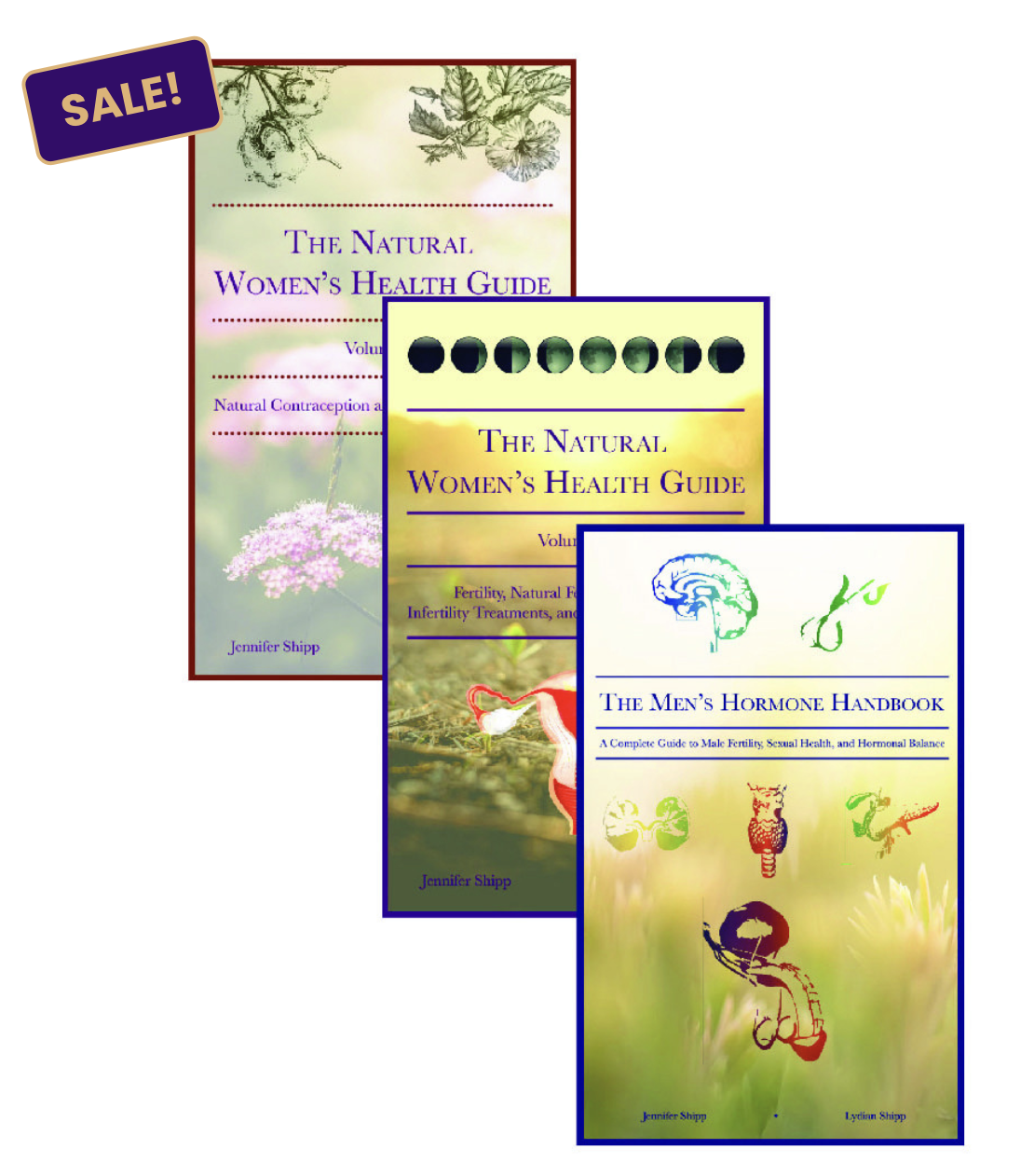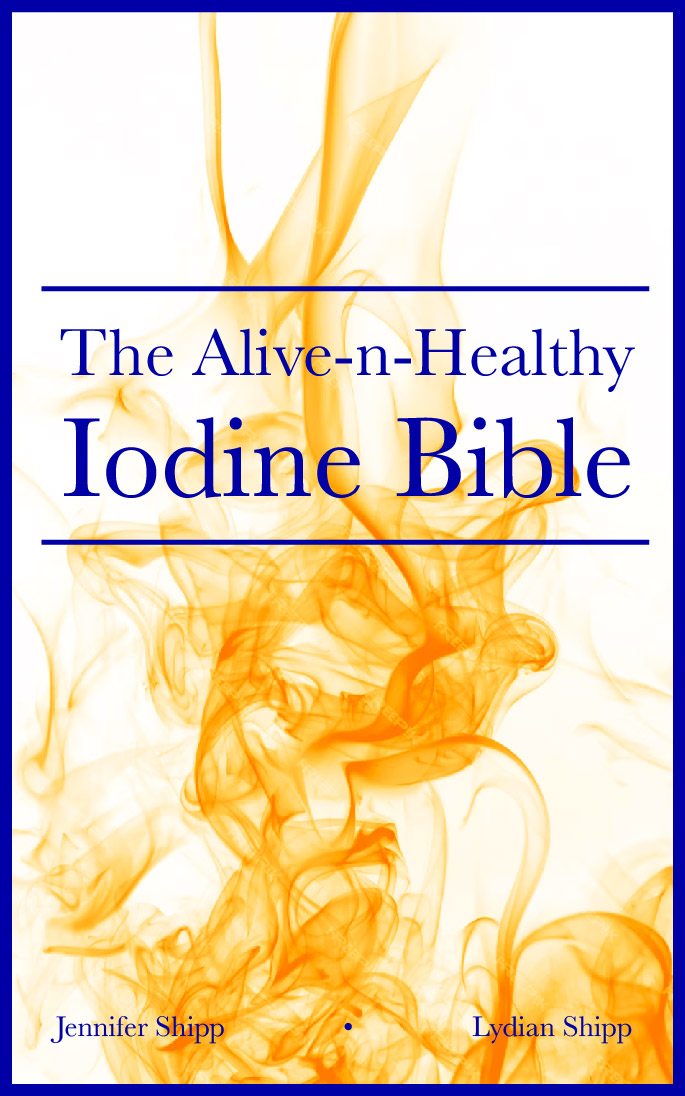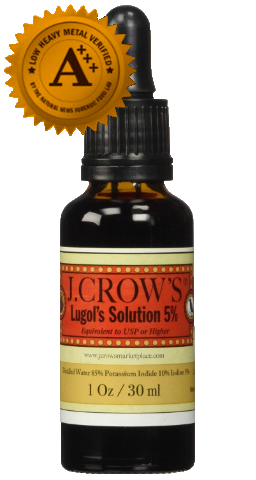Holistic Treatment for Infertility in Women
Most women know that if they’re trying to conceive, they should be taking a prenatal vitamin. The common knowledge is that the prenatal vitamin is ultimately intended to give a woman somewhat higher levels of nutrients so that when she does get pregnant, she has plenty of stores to be able to grow and give birth to a healthy baby. But what about men? And what if you’re a woman who’s having trouble getting pregnant?Nutritional deficiencies or even just particularly low levels of nutrients in the body (that may or may not be classified as formal “deficiencies”) can lead to a variety of different health problems, including both male and female infertility. In this case, a prenatal vitamin is far from enough to reverse nutritional deficiency caused infertility (and in fact, that prenatal vitamin you take may or may not even have any of some of the nutrients you might be missing). And for men, a prenatal vitamin isn’t even in the picture!
Having the appropriate levels of certain nutrients can not only increase fertility, but for women, it can also improve the chance of staying pregnant and giving birth to a healthy baby that will retain better health for the rest of its life. Indeed, what happens during pregnancy can affect the child for the rest of his or her life, and providing that baby with the right levels of nutrients during (and of course after) pregnancy can improve the health of the child even into old age. Thus, nutrition is important for many reasons.
Female Infertility
Female infertility can be caused by a variety of factors, including psychological factors, illness (such as endometriosis or PCOS), and inadequate nutrition. If you were on birth control before trying to get pregnant, the chances are good that you’re slightly deficient in at least a few nutrients (folic acid, vitamin B6, and magnesium, to be exact). Deficiencies in various vitamins and minerals (as well as other nutrients like amino acids and fatty acids) are more common than most people think, even in developed countries like the United States.To illustrate the prevalence of nutritional inadequacy and/or deficiency: one study into female infertility even demonstrated that intakes of selenium, magnesium, zinc, and iodine were suboptimal in 50% of the participants. Another 50% of the participants (with some overlap between this group and the last group) were almost clinically deficient in vitamin B12, vitamin C, vitamin E, beta-carotene (vitamin A), and folate/folic acid (vitamin B9), as well as in the essential fatty acids. As you’ll see below, nutritional deficiency or inadequacy plays a huge role in whether or not a woman is able to conceive and stay pregnant. It’s also absolutely essential for the health of the child (which will be discussed in a different article).
A different study that followed the pregnancies of 60 women with preeclampsia noted a 29% decrease in early pregnancy loss when the women were given a combination of vitamin and mineral supplements. The combination given in this study included:
- Vitamin A - 300mg
- Vitamin B6 - 2.2mg
- Vitamin B12 - 2.2mcg
- Vitamin C - 200mg
- Vitamin E - 267mg
- Folic acid - 400mcg
- NAC (N-acetyl cysteine) - 200mg
- Copper - 2mg
- Zinc - 15mg
- Manganese - 0.5mg
- Iron - 30mg
- Calcium - 800mg
- Selenium - 200mcg
While some of these doses are adequate (and undoubtedly even a little extra of many of these nutrients would be helpful for many women with infertility), some of the vitamins, minerals, and nutrients listed above have been recommend in relatively higher doses than those given during this particular study. N-acetyl cysteine (NAC), for example, can be administered at a starting dose of 1200mg and be increased up to a dose of 2400mg per day for the treatment of infertility. Vitamin B12, when given therapeutically to treat deficiency, is generally given at doses of 1000mcg (1mg) daily, and may even be administered intravenously or intramuscularly (this is ideal, actually, since oral supplements of vitamin B12 aren’t usually well-absorbed). Just these two facts alone suggest that some differences to the supplementation protocol described above may produce even more significant positive results than those seen in the study.
Below I’ve written about some of the most important nutrients for female fertility. Keep in mind that with nutritional supplementation it’s likely that you’ll need to take more than one pill or capsule each day. All of the different nutrients work together for healing and health, so it’s important to take the necessary nutrients at the correct doses in order to treat infertility holistically.
B-Complex Vitamins
Vitamin B2 Fertility Treatment
Vitamin B2, otherwise known as riboflavin, may be depleted in women who have taken birth control pills. For this reason, taking a B-complex vitamin with somewhat higher amounts of riboflavin may be helpful. Plus, because vitamin B2 is necessary for the absorption of vitamin B6, if you’re deficient in this vitamin, chances are good you’re also deficient in vitamin B6. Thus, taking these two vitamins together is essential for success! Take up to 400mg per day of riboflavin while treating infertility (this is the therapeutic dose).Vitamin B3
Vitamin B3, niacin, is necessary for the creation of sex hormones (estrogen, progesterone, etc.) in the body. So if you don’t have enough of this nutrient, you may not be producing enough sex hormones to be fertile enough to conceive. Taking a niacin supplement will also improve mood and energy levels. If you choose to try taking niacin, ideally you should obtain a supplement that is only niacin, and that is immediate release (avoid the “non-flushing” or “sustained release” forms for now). Start with a dose of 500mg per day. You may increase the dose up to 3000mg per day in 3 divided doses, particularly if you don’t experience any flushing with lower doses (flushing indicates that your body is getting enough of the vitamin for it to be therapeutic). After conception, lower your dose back down to 250-500mg per day.Vitamin B9 (Folate/Folic Acid)
Folic acid (vitamin B9) is a supplement that most women know they need to take if they’re trying to conceive in order to prevent birth defects in their future baby. Unfortunately though, a deficiency in this nutrient isn’t all that uncommon, and too little folic acid can make it difficult to even conceive a baby in the first place. This is another B complex vitamin that’s present in diminished quantities in women who have been on birth control or hormone replacement therapy (these women may consider supplementing with a little extra vitamin B9). Some experts recommend taking a dose higher than the standard recommended dose for the prevention of neural tube defects (which is 400mcg). A dose of 800mcg may be helpful for women with infertility (consider taking methyl folate, the active form of folic acid, to account for the possibility that you have the MTHFR gene that interferes with your body’s ability to metabolism regular folate or folic acid).Decreased folate levels in follicular fluids have also been associated with poor oocyte and embryo quality, which may lead to miscarriage or stillbirth in some women.
Vitamin B12
Vitamin B12 is another vital B-vitamin necessary for fertility and a healthy pregnancy. Women who follow a vegan or strict vegetarian diet are at a significantly higher risk of being deficient in this nutrient, as are women who have taken oral contraceptives or received other synthetic hormone therapies. In fact, infertility is a symptom of vitamin B12 deficiency; because vitamin B12 is water-soluble and highly non-toxic, most couples with unexplained infertility would benefit from each receiving a vitamin B12 injection (or an IV therapy that includes vitamin B12) to account for the possibility of a deficiency. Most therapeutic administrations of this vitamin may be given at 1,000mcg (1mg), administered intramuscularly or intravenously, one or two times per year at minimum to prevent deficiency.Vitamin B6
Vitamin B6 works with vitamin B12 and vitamin B9 to regulate and reduce homocysteine levels in the body. Homocysteine is a toxic amino acid that can lead to an increased risk of recurrent miscarriage or general infertility (in addition to posing a risk for cardiovascular disease). A strong correlation between a lack of ovulation and higher homocysteine levels has also been noted (suggesting that women with PCOS-related infertility may benefit from these three vitamins specifically). When a person doesn’t have adequate levels of vitamins B6, B12, and B9, their homocysteine levels tend to be correspondingly high. Because of the potentially negative effects of high homocysteine levels on conception and a healthy pregnancy, supplementation with these three B vitamins in particular may promote fertility in part through regulation of this amino acid. Women treating infertility should take a minimum of 25mg of vitamin B6 per day.Inositol
Though not a formal B-complex vitamin, inositol is generally considered to be a part of the B-vitamin group and works together with all of the other B-complex vitamins. Specifically, it helps manage estrogen levels in the body. Because of this, when inositol is present in the body in low levels, women may have trouble conceiving. Inositol and choline work closely together and ideally should be taken together, along with a B-complex supplement with the other 8 formal B vitamins.PABA (Para-Aminobenzoic Acid)
PABA (para-aminobenzoic acid) is another informally recognized B vitamin (some professionals don’t acknowledge PABA as a B-vitamin while others do; here I’m categorizing it as a B-vitamin mostly for simplicity’s sake). Though there are limited studies into the efficacy of PABA as a fertility enhancer, some women claim that supplemental PABA or the addition of more PABA rich foods into the diet was the main factor in their being able to conceive successfully.Vitamin E and Infertility
The name for the most common and bioavailable form of vitamin E, d-alpha tocopherol, is derived from the Greek words meaning “offspring” and “to bear”. Literally, then, “tocopherol” means “to bear children”. This alone suggests the vitamin’s importance as a fertility enhancer. One study done in 1922 followed a group of female rats who were fed a diet without any vitamin E. Over time, the rats became infertile. However, this infertility was reversible, and after the rats were subsequently fed wheat germ oil (a good source of vitamin E) as a part of their diet, they regained their fertility and were able to birth pups.Lower levels of vitamin E in women are also associated with an inability to carry a pregnancy to term, and/or multiple miscarriages. Uterine degeneration is a symptom of vitamin E deficiency as well. Notably, some studies indicate that vitamin E may be depleted by taking oral contraceptives or other forms of synthetic estrogen.
Take 500-800IU of vitamin E per day. Make sure that the type of vitamin E you take is the natural form to ensure optimal absorption and efficacy of the vitamin. Ideally, the supplement you choose should contaIn d-alpha tocopherol, the most bioactive and bioavailable form of vitamin E.
Provitamin A (Beta-Carotene) - Vitamin A in Fertility
Beta-carotene is generally the best form of vitamin A to take since it’s the “precursor” version of vitamin A and excess amounts are unlikely to cause any side effects. It’s significantly easier to take too much preformed vitamin A (retinol) than to take too much beta-carotene. In women’s health, beta-carotene is necessary for converting cholesterol into estrogen, a hormone necessary for general reproductive health and abilities.Women treating infertility may take between 6-15mg (equivalent to 10,000-25,000 IU) of beta-carotene daily in supplement form. This supplement is of course in addition to any vitamin A that you may consume in your diet.
Vitamin C and Fertility
Vitamin C is a powerful antioxidant with many different healing powers. In the treatment of female fertility, connections have been observed between a shorter time to conception and a higher intake of antioxidant nutrients, including vitamin C, beta-carotene, and vitamin E. The particular study that noted this included 437 couples being treated for unexplained fertility. Taking vitamin C supplements during pregnancy can also help improve the overall health of the infant after birth and improve recovery for the mom afterwards.For the treatment of infertility, start with a dose of 350mg per day and work your way up to 3000mg daily if it feels right. If you experience diarrhea or stomach upsets, reduce your dose until you don’t experience these symptoms anymore (this is your body telling you that it’s getting enough vitamin C, it’s not a cause for concern, and be aware that some people may have this reaction with either more or less vitamin C intake).
Vitamin D3 and Fertility
Before reading onward, keep in mind that if you choose to take supplemental vitamin D, that you should always take it in combination with a vitamin K2 supplement. The reason for this is that without vitamin K2, vitamin D will “misdirect” calcium into your arteries and veins rather than into your bones where it ultimately belongs, which can lead to arterial plaque buildup and calcium deposits, and potentially blood clots. Additionally, if you are able to obtain adequate sunlight each day (by simply sitting in the sun in a bathing suit), consider making yourself a Budwig Smoothie and spending 30 minutes out in the sun each day while drinking that smoothie instead of taking supplemental vitamin D. Do not wear sunscreen if you choose to do this. If, however, you live in a climate where you’re unable to do this or if you’re in a northern climate where sunlight is extremely limited (or where you’re not able to sit in the sun for some other reason), then read onward about supplemental vitamin D, keeping in mind that you’ll also need to take supplemental vitamin K2 at the same time.Many studies have shown a strong link between vitamin D and proper function of the reproductive organs. There are vitamin D receptors present in the ovaries, endometrium, placenta (when a woman is pregnant), pituitary gland, and hypothalamus, suggesting that all of these reproductive-related organs require vitamin D in order to do their jobs correctly. Some of the interesting points to note in regard to vitamin D and fertility are:
- Women with polycystic ovarian syndrome (PCOS) are more likely to suffer from endocrine or metabolic disorders if they have a deficiency in vitamin D. This increases the chances of PCOS-related infertility.
- Vitamin D is necessary for the creation of sex hormones. It is also necessary for the body to carry out normal endocrine (hormone) system processes.
- Low serum levels of vitamin D have been associated with PCOS and endometriosis.
- Low serum levels of vitamin D negatively impact ART (Assisted Reproductive Technology)
- Vitamin D plays a role in the regulation of glucose metabolism by encouraging the creation and release of insulin. In this way, vitamin D may be important for women with PCOS since most PCOS-sufferers have issues with hyperinsulinemia and insulin resistance.
If you’ve chosen to take supplemental vitamin D, the generally accepted dodge is 1500-2000IU (or greater) per day. There are combined D3+K2 supplements available, which may be a good choice for a lot of women, though it's also possible to take two separate capsules for each of these vitamins at the same time (your choice). You may take this in addition to the Budwig Smoothie if you’d like, but no matter what, as mentioned at the beginning of this section, make sure to also take a vitamin K2 supplement at the same time as the supplemental vitamin D.

Click here to buy The Natural Couple's Guide to Fertility Book Bundle.
Vitamin K2
Vitamin K2 is a must-have supplement in any woman’s pro-fertility toolkit. In fact, this is a must-have supplement, period. Vitamin K2 is an essential nutrient that works with vitamin D and calcium to ensure that the calcium that is absorbed in the intestines is placed in the bones and teeth, rather than being allowed to stay in the bloodstream. Without vitamin K2, arteries and veins can calcify, as can soft tissues and organs. In regard to female infertility, calcifications of the pineal gland and ovaries are of the foremost concern, but other minor calcifications in different organs or tissues can also cause problems without you even knowing it.Vitamin K2 used to be present in the food supply in sufficient quantities, but now the vast majority of people are getting little to no vitamin K2 in their diet. Vitamin K2 is normally present in organic, grass-fed meats, cheeses, milks, and eggs, but since the average person these days eats animal products from animals that were raised in a commercial setting (and therefore fed foods that are unsuitable for them and given antibiotics and hormones), they aren’t getting any of this important vitamin. Eating exclusively foods from grass-fed animals can supply sufficient amounts of vitamin K2 in many cases, but because this vitamin is so important for fertility and general health, it’s smart to take at least a small supplement in addition to prioritizing quality sources of animal protein.
Taking a vitamin K2 supplement can not only prevent calcifications, but it can also reverse any calcifications that may already be present in your body. This is another reason to take a supplement (since the chances are good that you aren’t among the few people who were raised eating exclusively organic, grass-fed animal proteins). In addition, vitamin K2 ensures that calcium levels stay in check, thus also ensuring that iodine is absorbed and used effectively.
Besides being a valuable treatment for organ calcifications, vitamin K2 also carries the following benefits for women who are trying to conceive:
- Improved insulin sensitivity in women with PCOS
- Benefits embryonic development
- Improves the skeletal structure and jaw/dental health of offspring
Vitamin K2 should be taken as MK-7, the natural form of the vitamin in supplement form. It is available in pure vitamin K2 supplements, or as a combined vitamin K2+D3 supplement. Either one is acceptable. If you live in a northern climate or are unable to obtain much sunlight, a combined K2+D3 supplement may be preferable to help ensure that your body is also getting vitamin D from your supplementation protocol (NOTE: Again, don’t take vitamin D supplements without vitamin K2!). If you’re aware or suspect that you may have organ calcifications, consider taking a higher dose vitamin K2 supplement on its own, at least initially.
 Bronson Vitamin K2 as MK-7 Menaquinone 100 mcg Non-GMO, 120 Capsules
Bronson Vitamin K2 as MK-7 Menaquinone 100 mcg Non-GMO, 120 Capsules
Iodine
Iodine deficiency is prevalent throughout most of the developed world, and also in large portions of the developing world as well (with some exceptions in both cases, of course). In the United States for example, the use of bromine (a chemical element in the same column on the periodic table as iodine) as well as the lack of dietary iodine in the average American’s diet means that most women and men both are severely deficient in this nutrient. Bromine is similar enough to iodine that it can fill the iodine receptors in the thyroid and reproductive organs, but because it’s ultimately poison to the body (and simply isn’t iodine), this results in all kinds of endocrine and reproductive system problems and disorders.Iodine is important for male fertility as well, but women with fertility problems should be aware that women have a higher requirement for iodine and are therefore at a somewhat higher risk of actual iodine deficiency. Some of the health problems relevant to the subject of reproductive health that can occur as a result of iodine deficiency include:
- Reproductive organ cancers (including breast cancer, ovarian cancer, prostate cancer, etc.; to illustrate this point, in Japan, where most people eat a lot of seaweed and therefore consume higher levels of iodine, the rates of reproductive cancers are notably lower than in the US or in Canada)
- Weight gain
- Infertility and/or increased time to conceive
- Miscarriage and stillbirth
- Children born with developmental delays
- Children whose growth is stunted (including children born with low birth weights)
- Low libido
- Erectile dysfunction (in men)
- Menstrual irregularities
- Premenstrual Syndrome (PMS)
- Mastalgia (painful/sore breasts)
Supplementing with iodine is simple and safe at any point before, during, or after pregnancy. Make sure though that you choose Lugol’s iodine to take! The iodine you can buy at the pharmacy (Betadine/povidone iodine) should not ever be taken internally and will not work to provide your body with the iodine it needs. Lugol’s iodine is a bioavailable version that combines potassium iodide with elemental iodine in a water solution. Iodoral is a pill-form of this same kind of bioavailable iodine (though more expensive, it works just as well and may be preferable for some women).

Click here to buy The Iodine Bible.
To treat iodine deficiency, you’ll start by taking 1-2 drops of Lugol’s iodine each day (either put it on your wrist and rub it in, or put the drops in some water to drink). Work your way up slowly to 20 drops a day. When you start taking iodine, the bromine will be forced to leave your body. This causes detox symptoms for most people, including a rash known as bromaderma, as well as depression symptoms, bladder irritation, acne, and other symptoms. If this happens to you, mix a teaspoon of sea salt in a glass or fresh water and drink this every hour until you need to urinate frequently. This will help clear the bromine from your system more quickly and will ultimately help relieve the symptoms of a bromine detox. These symptoms will go away once you clear the bromine from your system, but it’s important to continue taking the iodine every day even after your detox, especially if you live in a country where bromine is found in a variety of household products (including in your water supply). If you’re reading this, chances are you live in one of these countries or have lived in one in the past.
Note that even if you’re eating iodized salt, you’re very likely not getting anywhere near as much iodine as your body needs (if any). Most iodine evaporates when it’s exposed to air. It used to be that iodine was included in bread products to ensure that the population ate enough of it, which was acceptable since the iodine didn’t evaporate when incorporated into bread, but salt is a poor medium for iodine fortification, unfortunately. Other good dietary sources of iodine are nori seaweed (though most seaweeds/kelps will have some iodine in them), fish, eggs, chicken, and other animal products. Keep in mind though that even if you eat these foods, if you live in the US, Canada, Europe, or another highly developed country, you probably get exposed to fairly high quantities of bromine on a regular basis and will need to supplement with iodine to make absolutely sure that your body has adequate levels at all times.
Also be sure to take a selenium supplement at the same time as taking supplemental iodine. This will help with detoxification and will also ensure that your body will be able to actually use the iodine appropriately. Plus, selenium plays an important role in fertility, as I’ll discuss below.

Click here to buy Lugol's Iodine 2%.
Selenium, as mentioned above, is another important nutrient for fertility. In women, low serum concentrations of selenium have been associated with a longer period of time before conception, as well as a generally higher risk of infertility. Selenium may also play an important role in the growth and maturation of oocytes (otherwise more commonly known as “eggs”). Selenium supplements are commonly administered at doses of 200-400mcg per day. Again, selenium works best when combined with iodine, especially when it comes to the treatment of female infertility.Zinc
Women and men both need adequate levels of zinc in order to be able to conceive. Zinc deficiency in women may lead to a longer time period before conception, though studies have shown that a deficiency may not always lead to actual infertility. During pregnancy though, zinc is an extremely important nutrient, so women who are trying to conceive may benefit from taking a zinc supplement in some cases, particularly if they’re having trouble conceiving. Zinc is necessary for proper fetal growth (as well as for on-track infant growth after birth). Zinc deficiency in women has previously been linked to irregular periods, which suggests its potential connection to ovulation and/or general reproductive health.Some people experience nausea after taking a zinc supplement on an empty stomach, so if you choose to take zinc, take it after having eaten something to avoid this issue. A supplement of 15mg per day is a good choice, and if you’re planning to take it over a period of time longer than 1 month, make sure to also take a copper supplement of 2mg per day (read more about this below in the section about copper).

Click here to schedule a health coaching call with us.
Iron
Iron is extremely important for women of child-bearing age since most younger women who are menstruating have a higher requirement for iron than do men. Each month, women lose some iron during their menstrual period, and that iron must be replenished sufficiently in order to avoid deficiency (women with more frequent periods or who have a heavier menstrual flow are particularly at risk of developing an iron deficiency). Deficiency of iron, in regard to reproductive health, can lead to problems with infants’/children’s intellectual development, an increased risk of Candida albicans infection, premature birth, low birthweight babies, or behavioral abnormalities, cognitive impairment, and slowed growth in children born to mothers who were deficient in iron before or during pregnancy.Notably, both deficiency in and excess of iron can negatively affect fertility. One study demonstrated that decreased sexual activity has been associated with lower iron levels in females (which contributes, of course, to one’s chances of conceiving). A different study supplementation of iron may improve fertility in women with ovulation-related disorders like polycystic ovarian syndrome.
Women who follow a vegan or strict vegetarian diet are significantly more likely to be deficient since some of the best sources of dietary iron come from animal sources (eggs, red meat, poultry, fish, etc). While plant-based iron does exist, it is not as bioavailable and is therefore not as readily absorbed by the body, meaning that deficiency is more likely if a woman doesn’t consume any animal products. Drinking coffee or tea, especially at mealtimes, can also reduce iron levels.
If you choose to take supplemental iron, take a vitamin C supplement with it since vitamin C can increase iron’s absorption. Avoid taking high doses of vitamin E at the same time as iron since this can reduce iron absorption; zinc can also interfere with iron absorption, so if you’re taking a zinc supplement, take it at a different time of day as the iron supplement (for instance, take your iron and vitamin C in the morning, and wait to take the zinc until evening).
Women who are pregnant need at least 27mg of iron per day, but should consume no more than 45mg daily. It’s reasonable to assume that for the treatment of female fertility, these are good baseline numbers to follow. If you eat a lot of red meat or animal products, you may be able to take an iron supplement with less iron (say, 10mg or 15mg), whereas if you eat primarily plant-based foods with more limited animal products, a supplement consisting of 25mg of iron may be more appropriate, particularly if you experience heavy menstrual periods. Start with a lower dose when in doubt. Take 500-1000mg of vitamin C with your iron supplement.
Copper
Low serum levels of copper have been linked to an increased risk of infertility. In addition, copper can help increase the absorption of iron, another important fertility mineral. It’s unlikely that you’ll need to take a copper supplement, since comparatively little copper is needed for most bodily functions, but its mention is still important. Only take a copper supplement (no more than 2mg daily) if you choose to take zinc over a period of time longer than 1 month; taking larger doses of zinc can deplete copper levels, and since copper is still necessary (even if it’s only needed in comparatively small quantities), it’s important to balance these two nutrients accordingly.Magnesium
Magnesium supplementation may prove useful for all women suffering from infertility, however it is particularly valuable as a supplement for women with polycystic ovarian syndrome. Since magnesium is necessary for glucose metabolism, it may help reduce insulin resistance and hyperinsulinemia in women with PCOS. Additionally, women who have taken oral contraceptives in the recent past may benefit from magnesium supplementation since these medications can deplete magnesium and cause deficiency.Other uses in women's health include the treatment of PMS, menstrual pain, prevention or management of premature labor, and treatment of toxemia (blood poisoning) during pregnancy. Some studies have also shown that taking supplemental magnesium before and during pregnancy can help reduce the risk of some birth defects and also of sudden infant death syndrome (SIDS) in newborn infants.
The generally recommended dose for magnesium in the treatment of female infertility is approximately 350mg per day. Since magnesium helps relax the body, it’s a good idea to take this supplement at night since it can support relaxation and healthy sleep (though it’s okay if you choose to take it during the day, too, if this is what works for you).

Click here to learn more about the DreamLight.app, a guided meditation and brain-entrainment tool.
Resources:

 Although eating a healthy diet consisting primarily of fruits, vegetables, and whole foods (not processed foods) is extremely important, sometimes taking a nutritional supplement is necessary. Very often, the soil in which food is grown is deficient in certain nutrients, meaning that the food we eat ultimately may not provide us with the vitamins and minerals we need to survive. In the treatment of infertility, nutritional supplementation can make a major difference.
Although eating a healthy diet consisting primarily of fruits, vegetables, and whole foods (not processed foods) is extremely important, sometimes taking a nutritional supplement is necessary. Very often, the soil in which food is grown is deficient in certain nutrients, meaning that the food we eat ultimately may not provide us with the vitamins and minerals we need to survive. In the treatment of infertility, nutritional supplementation can make a major difference.


















